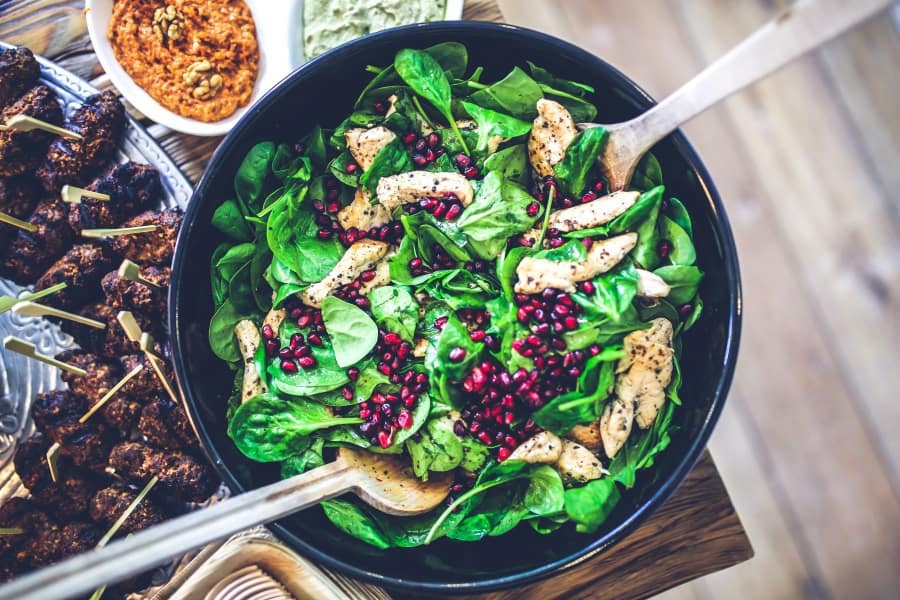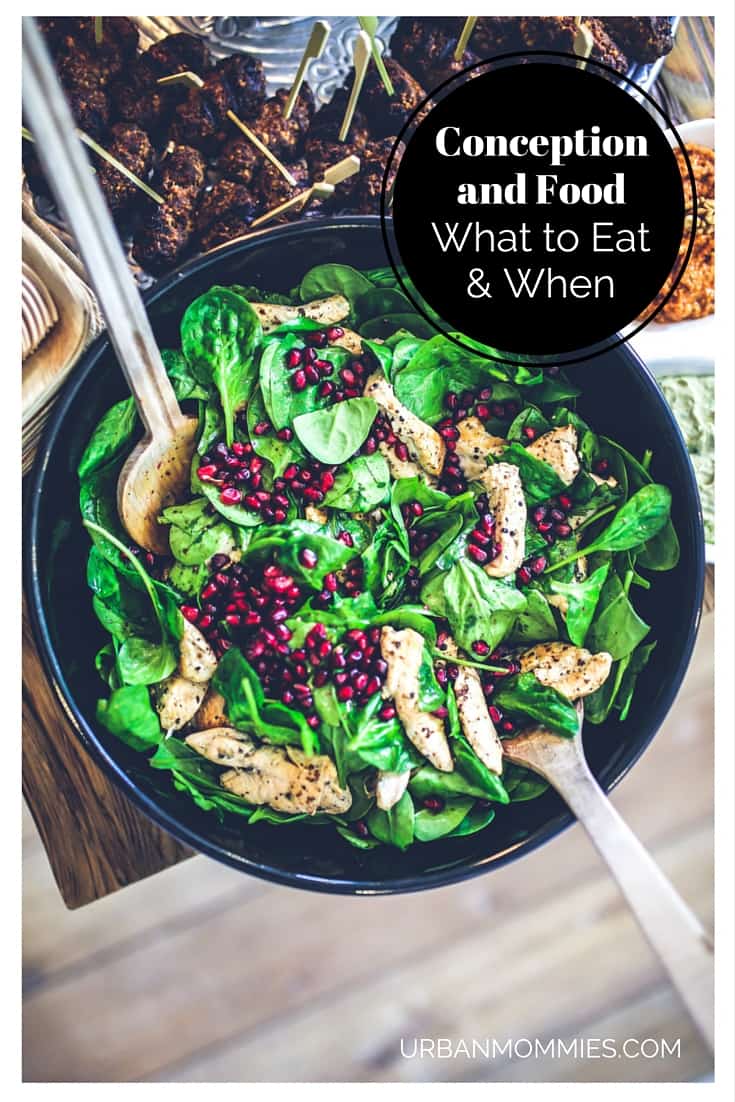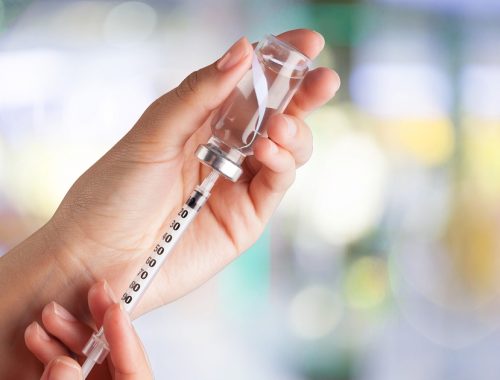Eating a healthy, balanced diet rich in antioxidants and high in nutrients is important, but there is more to it than that – it can boost fertility. Surprisingly, it’s not just what you eat, but when you eat it. Our bodies have different nutritional needs over the course of the month, so it makes sense that there is a link between conception and food.
Menstruation
Protein! During menstruation, it’s not unusual to lose 30-40 milliliters of blood over the course of three to seven days—and with that blood loss often comes iron deficiency. While you are on your period, make sure to eat enough foods that have lots of iron (lean meats, beans, leafy greens, seeds), especially if you have heavy periods or endometriosis. Some of these foods even discourage and alleviate cramps via their anti-inflammatory properties (fish, seeds, and leafy green veggies)! Another useful tip: eat foods high in Vitamin C at the same time, such as peppers, citrus fruits, broccoli, and kiwis, because Vitamin C helps your body absorb the iron from foods like beans, whole grain products, and fortified cereals.
- What to avoid: spicy foods, caffeine, and alcohol, all of which can increase bleeding and inflammation.
- Suggested menu: Lean steak fajitas with grilled bell peppers and onions, black beans, and salsa.
Follicular Phase
During the body’s follicular phase, you are trying to develop what is called a dominant follicle, and the levels of estrogen are rising. Women with conditions like endometriosis or fibroids frequently have too much estrogen, which can be detrimental to conception. Additionally, our foods are often laden with what are called “environmental estrogens,” such as pesticides and hormones in meats and dairy products. What’s the solution? Eat lots of cruciferous vegetables, such as broccoli, cabbage, cauliflower, and kale. Why? Because they contain di-indolylmethane (DIM), a phytonutrient that binds to and helps rid the body of environmental estrogens. Also, eat foods rich in Vitamin E, such as olive oil, avocado, nuts and seeds along with those veggies, because the Vitamin E helps your body metabolize the DIM.
- Avoid: Alcohol, which can wreck the hormone balance in your body, and is also dehydrating, causing cervical mucus to thicken—which can hinder conception!
- Suggested menu: a yummy chicken and broccoli stir-fry with cashew nuts and brown rice.
Related
Conception Tips: How to Get Pregnant, Faster
Understanding Infertility: 5 Most Common Diagnoses and Treatment Solutions
Early Pregnancy Signs and Symptoms
Ovulation
Leading up to that all-important day when your ovaries release that all-important egg, your body will need lots of B vitamins and other nutrients that encourage ovulation and implantation. What are they? Zinc (aids in cell division and the production of progesterone), Vitamin C (could aid in progesterone production), essential fatty acids, like omega-3 fatty acids (they promote blood flow to your uterus, support the follicle’s release of the egg, and even open up the blood vessels in your lady parts…helping with the arousal and orgasm!). Eat lots of leafy green vegetables, whole grain products, eggs, lean meats and fish (or fish oil supplements), legumes, and eggs. Also, drink tons of water, because hydration is essential in circulation of blood and the hormones it bears, as well as helping to thin out cervical mucus, which aids in facilitation conception.
- Avoid: Acidic foods (too much acid is detrimental to conception, creating a hostile environment for sperm) such as citrus, coffee, alcoholic drinks, red meat and processed foods. To neutralize acid and increase the alkalinity factor, eat green veggies, baby carrots, sprouts and wheatgrass.
- Suggested menu: Salmon on brown rice, sautéed spinach with garlic and olive oil.
Luteal Phase
During this phase, make sure to take in plenty of nutrients that are known to promote cell growth, such as beta-carotene (leafy greens, yellow and orange fruits and veggies such as sweet potatoes and carrots), which helps to keep the hormones in check and can help possibly help prevent miscarriage. Also, try to eat hot (as in temperature) foods, such as chili, soups, stews, etc. The luteal phase is when warmth is best, promoting growth and expansion.
- Avoid: Cold foods (especially things like ice cream or frozen yogurt, which are not only cold but the dairy can increase mucus production, not the best thing when you’re trying to conceive), raw foods (because of the possibility of a bacterial infection).
- Suggested menu: A bowl of spicy chili made from lean ground beef or turkey, whole grain bread, and a fruit plate for dessert.




Am I re-reading exactly what I just read at this page?
http://www.parenting.com/article/what-eat-conceive?page=0,1
Plagiarism is the “wrongful appropriation” and “purloining and publication” of another author’s “language, thoughts, ideas, or expressions,” and the representation of them as one’s own original work.
Hi Kay, We have just investigated this and you are completely correct. Though the wording is very different the thoughts are too similar. We will go back through all of our former author’s posts to see if any others are based so closely on articles from another site. In the meantime we have taken the post down. Thank you for bringing this to our attention!
Uh, the post is still up, FYI…
This is a copied post and will be reported and appropriate action would surely be taken!!